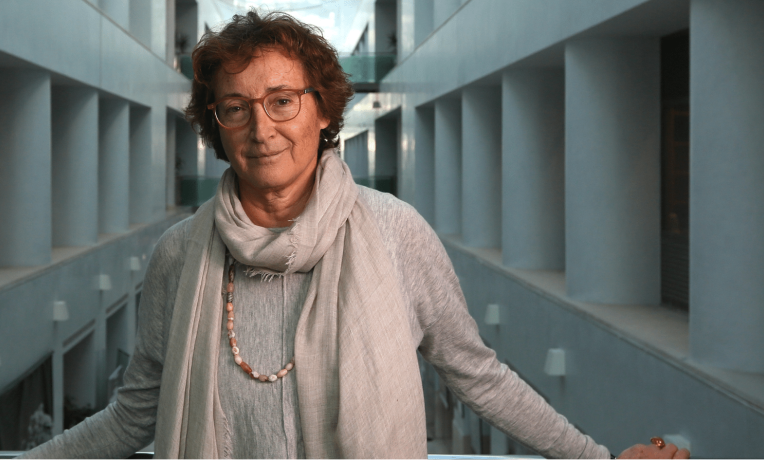Science knows no borders

The ERC was, from the outset, a global endeavour. Stimulating scientific excellence in Europe by funding the very best, creative researchers of any nationality is at its core - ERC grants are open to researchers from anywhere in the word, provided the research they undertake is mainly carried out in the European research area. The participation of researchers from around the world in the ERC’s peer review evaluations is what many understand to be one of the hallmarks of the success of the ERC.
Top science is intrinsically international. As our biggest challenges become increasingly complex and interconnected, international cooperation in research is emerging as the most effective, and in many cases only, way to tackle issues related to climate, health, food and energy - that are all global by nature.
More concretely, there are significant benefits especially to young researchers that come from being immersed in different academic milieus, whether from a geographical or disciplinary point of view. In fact, researchers can benefit from being more aware of references in other countries and not only focus on those of their home country. For instance, empirical sciences and others depend on recent bibliographies, but the humanities, which I myself come from as a historian and scholar of religion in post-Franco democratic Spain, use historiographies that go back a number of years.
The ERC is making great strides to be up-to-date with different academic approaches and with what led scientists to their bright ideas. The academic and cultural divides across the world are big, but also within Europe, particularly with the Eastern countries, as well as between Southern and Northern Europe. For instance, some researchers have certain difficulties with a model of presenting and defending a project that has been influenced by an Anglo-Saxon academic world.
Since early on, one of the ERC’s primary goals has been to achieve a high level of participation of researchers globally taking part as reviewers in the evaluation processes.
It has often been said that the ERC’s peer review system is one of the most international in the world.
Ensuring diverse panel compositions across nationality, disciplines and gender in all three domains - Physical Sciences and Engineering, Life Sciences, and Social Sciences and Humanities - helps address both academic and cultural differences, and ensures a large pool of peer reviewers. We will continue these efforts, not only because it influences the researchers selected for grants, but also for the fruitful exchanges between panel members.
Before I joined the Scientific Council, I myself was awarded an ERC Synergy Grant. From this vantage point, I have seen first-hand the big differences in the academic training of post docs in various countries, but also the enormous advantages brought about by the circulation of knowledge and ideas between these post docs and the academic communities in their countries of origin – dispelling any notions of ‘brain drain’.
At the ERC, we refer to it as ‘brain circulation’ and the international networks created though the ERC are maintained long-term.
So, how is the ERC doing to date from this perspective? We have funded over 10,000 researchers since our launch in 2007 and they hold more than 85 different nationalities. Some 8% of our grantees are non-Europeans, although the lion’s share of them were already in Europe before their ERC grant. Around 3% of grantees moved to Europe with the grant, which includes many Europeans moving back home. There are also over 80,000 postdoctoral fellows, PhD students and other staff working in the ERC grantees’ research teams and here we see an even higher degree of internationalisation; an estimated 17% are non-Europeans. To stimulate more of this, over the past decade the ERC has for instance launched initiatives for temporary research visits in the ERC teams with non-European counterparts across all corners of the globe.
But, is there also another side of the coin when it comes to international collaboration in research? Whilst certainly both inspiring and rewarding for all, it is not without its challenges. Factors such as different academic cultures, trust, communication, ethics, integrity and of course language play a role. These very much depend on the country of origin and the discipline, and may require some support and understanding from the receiving team that goes beyond differing academic approaches into addressing cultural differences.
In this edition of the ERC Magazine we therefore offer some different perspectives on international cooperation in research - from Nobel Prize winner Brian Paul Schmidt to scientist Nataliia Petryk who had to flee the Ukraine and is now conducting research in Sweden, to ERC-funded researcher Yanne Chembo. The ERC’s own Jose Labastida also further explains the different ways that the ERC promotes scientific cooperation.
The bridges of international cooperation in research can only truly be built when both academic and cultural barriers are acknowledged and understood.
Science knows no borders - I believe we all have a lot to gain from more collaboration across the world. What’s more, we could even say science is a global public good. The ERC Scientific Council will continue to encourage the circulation of knowledge - feeding into a rich global wellspring of curiosity-driven ideas that contribute towards meeting the challenges of our time.
Professor Mercedes García-Arenal
Member of the ERC Scientific Council
Member of the ERC Working Group on Widening European Participation

